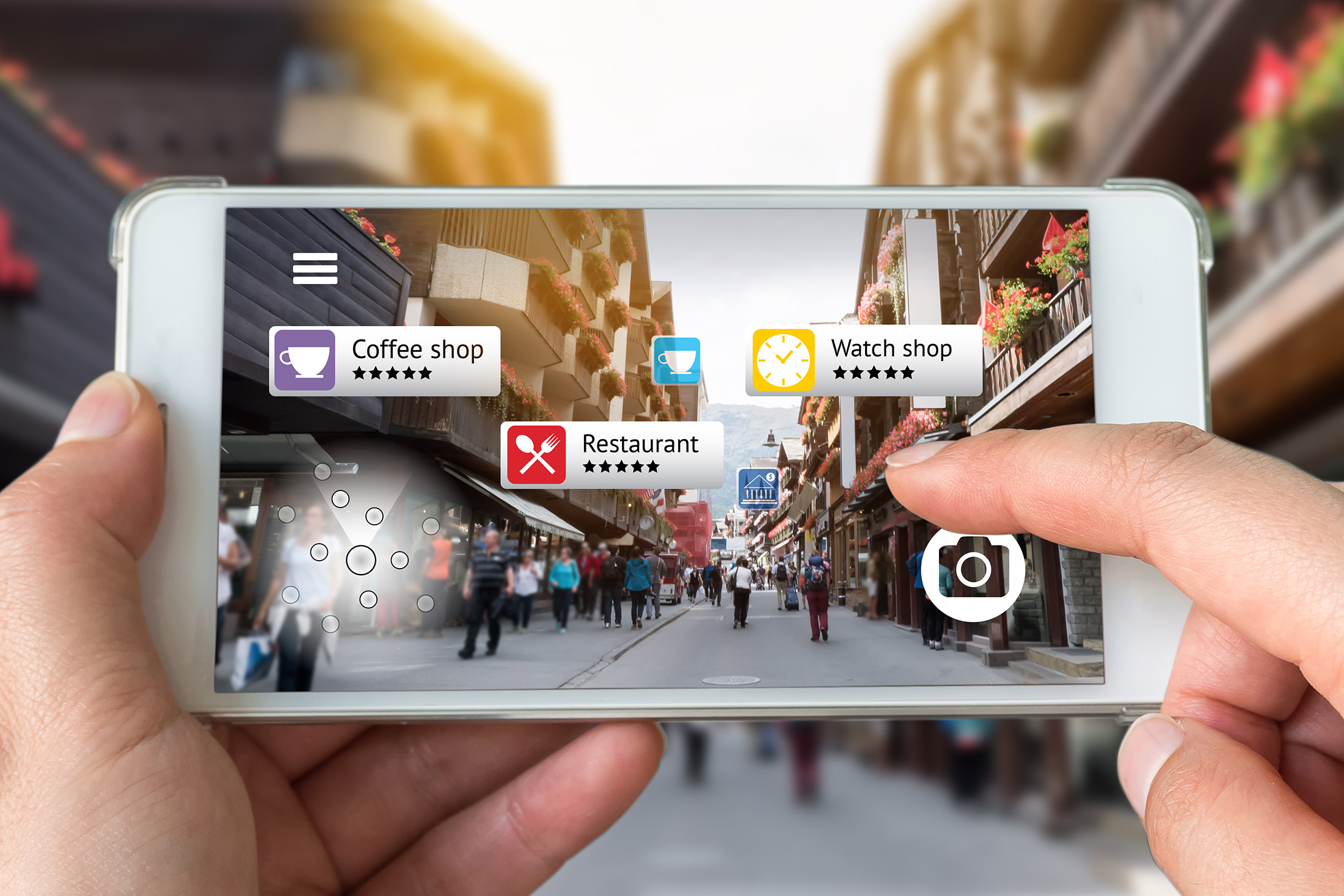Engage your customers on another level

John E. Kaye
- Published
- Home, Technology

Headquartered in Irvine, California, Candy Lab AR is an augmented reality (AR) technology company specialising in location-based services (LBS). Candy Lab AR’s target audience is tech-savvy, forward-thinking marketers and mobile phone users who are receptive to the use of disruptive technology in influencing consumer behaviour. They serve large agencies, brands, marketers and consumers with core technology to implement into existing efforts, or, serve as stand-alone dedicated channels for augmented reality experiences.
The European caught up with Andrew Couch, Co-founder and CEO of Candy Lab AR, to discuss the company’s strategy in the fast moving world of digital marketing.
Tell us about the inception of Candy Lab AR and the services you provide.
Andrew Couch: The formation of Candy Lab is quite an interesting one. I had just sold my first company and was trying to figure out what do next. I lived in San Diego at the time and the super-hero expo, Comic-Con, was in full swing. I wondered to myself “how can marketers engage with this crowd and market to them so they have an indescribable experience with their heroes at Comic-Con?”
I wanted to create a new advertising vertical through a new medium, which led me and my Co-founder, Gilda Campos, to create an augmented reality engine. Leveraging my mapping experience to the industry, we delivered a completely unique experience to marketers and ultimately their customers. So we set up Candy Lab and are proud to have established an award-winning, augmented reality technology company providing location-based services.
We have built the only 9-axis sensor fusion engine that combines GPS and beacons with a Real-Time Delivery Management System. Our augmented reality technology and real-time content delivery system are used to power mobile games and apps. We advocate for brands to create immersive experiences to deepen customer engagement. Our differentiator is due to our published beacon patent that allows for beacon facilitated content management and delivery. This ensures that Candy Lab can offer our customers both indoor and outdoor augmented reality experiences. With our content management system, marketers can make real-time updates to their augmented reality campaigns.
Inside Candy Lab AR’s headquarters in CaliforniaHow do you plan to expand your products and services further?
AC: Our goal is global growth and we intend to do this aggressively through licensing our technology in various markets. We are an engine and management company, not a marketing company or an agency.
It would be incredible if we could get our technology in the hands of every consumer out there. The best way for us to achieve this is by licensing our tech to the large agencies and partners that want a piece of this augmented reality tech for their customers, as they can offer it as a value-add to their current services.
Interestingly enough, we signed our first license deal in the UK in January and by the end of the year, we hope to have license holders in Brazil, Australia, UAE, Mexico and others.
However, we also have large brands and small-to-medium size businesses reach out to us and we service them by either integrating our technology into their already existing mobile apps or we can create a completely new augmented reality app.
Where does Candy Lab AR see location-based marketing going?
AC: It is going to be ubiquitous. Location-based marketing is going to be the new ‘digital marketing’ because you get to market, educate and engage with your consumers wherever they are at any specific time. Consumers are going to drive the demand for location-based marketing and augmented reality technology is going to be the disruptive technology that spurs the engagement of the consumer.
Any other projects in the pipeline?
AC: Candy Lab built the first ever location-based, augmented reality poker game, ‘Texas Rope ‘Em’ in 2017. This was really exciting for us because it allowed us to show the capabilities and versatility of our augmented reality technology.
We are not a game company but developing the game gave context to how our AR engine could be used by various industries. It also made brands very excited because they could visualise how they could build an AR experience for their brands or customer if they were an agency. We also became a member of the VR AR Association, which is an association helping to drive the acceleration, growth and connections in both virtual reality and augmented reality.
Our CMO, Josephine Munis is the president of the Los Angeles Chapter, while I sit on the board of the association as an advisor. I am also the co-chair for Mapping & Location Based Services. The committee is responsible for creating best practices, guidelines, and call to actions – e.g. recommendations for standards – for mapping and LBS. Our committee participants have or are actively publishing augmented and virtual reality experiences using ultra-specific locations to trigger immersive content. Our mission is to set the best-known standard for the many ways location sensors play a role in content delivery to a device in augmented or virtual reality.
How does location-based marketing work?
Location-based marketing targets consumers depending on their geographic position, therefore taking into account personal and cultural traits. This allows marketers to adapt their message and products accordingly, delivering to co-inside with specific events or local trends.
Candy Lab AR fit into this by providing the technology that allows marketers to create ultra specific innovative and exciting campaigns that allow engagement with their consumers consistently via their mobile device.
Further information
www.candylab.com
RECENT ARTICLES
-
 AI-driven phishing surges 204% as firms face a malicious email every 19 seconds
AI-driven phishing surges 204% as firms face a malicious email every 19 seconds -
 Deepfake celebrity ads drive new wave of investment scams
Deepfake celebrity ads drive new wave of investment scams -
 Europe eyes Australia-style social media crackdown for children
Europe eyes Australia-style social media crackdown for children -
 Europe opens NanoIC pilot line to design the computer chips of the 2030s
Europe opens NanoIC pilot line to design the computer chips of the 2030s -
 Building the materials of tomorrow one atom at a time: fiction or reality?
Building the materials of tomorrow one atom at a time: fiction or reality? -
 Universe ‘should be thicker than this’, say scientists after biggest sky survey ever
Universe ‘should be thicker than this’, say scientists after biggest sky survey ever -
 Lasers finally unlock mystery of Charles Darwin’s specimen jars
Lasers finally unlock mystery of Charles Darwin’s specimen jars -
 Women, science and the price of integrity
Women, science and the price of integrity -
 Meet the AI-powered robot that can sort, load and run your laundry on its own
Meet the AI-powered robot that can sort, load and run your laundry on its own -
 UK organisations still falling short on GDPR compliance, benchmark report finds
UK organisations still falling short on GDPR compliance, benchmark report finds -
 A practical playbook for securing mission-critical information
A practical playbook for securing mission-critical information -
 Cracking open the black box: why AI-powered cybersecurity still needs human eyes
Cracking open the black box: why AI-powered cybersecurity still needs human eyes -
 Tech addiction: the hidden cybersecurity threat
Tech addiction: the hidden cybersecurity threat -
 Parliament invites cyber experts to give evidence on new UK cyber security bill
Parliament invites cyber experts to give evidence on new UK cyber security bill -
 ISF warns geopolitics will be the defining cybersecurity risk of 2026
ISF warns geopolitics will be the defining cybersecurity risk of 2026 -
 AI boom triggers new wave of data-centre investment across Europe
AI boom triggers new wave of data-centre investment across Europe -
 Make boards legally liable for cyber attacks, security chief warns
Make boards legally liable for cyber attacks, security chief warns -
 AI innovation linked to a shrinking share of income for European workers
AI innovation linked to a shrinking share of income for European workers -
 Europe emphasises AI governance as North America moves faster towards autonomy, Digitate research shows
Europe emphasises AI governance as North America moves faster towards autonomy, Digitate research shows -
 Surgeons just changed medicine forever using hotel internet connection
Surgeons just changed medicine forever using hotel internet connection -
 Curium’s expansion into transformative therapy offers fresh hope against cancer
Curium’s expansion into transformative therapy offers fresh hope against cancer -
 What to consider before going all in on AI-driven email security
What to consider before going all in on AI-driven email security -
 GrayMatter Robotics opens 100,000-sq-ft AI robotics innovation centre in California
GrayMatter Robotics opens 100,000-sq-ft AI robotics innovation centre in California -
 The silent deal-killer: why cyber due diligence is non-negotiable in M&As
The silent deal-killer: why cyber due diligence is non-negotiable in M&As -
 South African students develop tech concept to tackle hunger using AI and blockchain
South African students develop tech concept to tackle hunger using AI and blockchain



























